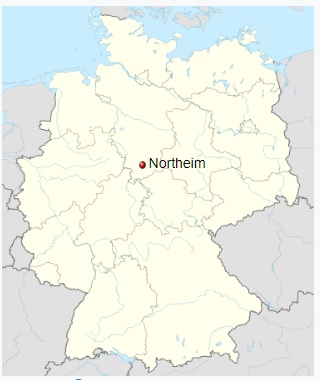William Sheridan Allen - The Nazi Seizure of Power
Here you can read online William Sheridan Allen - The Nazi Seizure of Power full text of the book (entire story) in english for free. Download pdf and epub, get meaning, cover and reviews about this ebook. year: 1966, publisher: Echo Point Books & Media, LLC, genre: Politics. Description of the work, (preface) as well as reviews are available. Best literature library LitArk.com created for fans of good reading and offers a wide selection of genres:
Romance novel
Science fiction
Adventure
Detective
Science
History
Home and family
Prose
Art
Politics
Computer
Non-fiction
Religion
Business
Children
Humor
Choose a favorite category and find really read worthwhile books. Enjoy immersion in the world of imagination, feel the emotions of the characters or learn something new for yourself, make an fascinating discovery.

- Book:The Nazi Seizure of Power
- Author:
- Publisher:Echo Point Books & Media, LLC
- Genre:
- Year:1966
- Rating:3 / 5
- Favourites:Add to favourites
- Your mark:
- 60
- 1
- 2
- 3
- 4
- 5
The Nazi Seizure of Power: summary, description and annotation
We offer to read an annotation, description, summary or preface (depends on what the author of the book "The Nazi Seizure of Power" wrote himself). If you haven't found the necessary information about the book — write in the comments, we will try to find it.
The Nazi Seizure of Power — read online for free the complete book (whole text) full work
Below is the text of the book, divided by pages. System saving the place of the last page read, allows you to conveniently read the book "The Nazi Seizure of Power" online for free, without having to search again every time where you left off. Put a bookmark, and you can go to the page where you finished reading at any time.
Font size:
Interval:
Bookmark:


Published by Echo Point Books & Media
Brattleboro, Vermont
www.EchoPointBooks.com
All rights reserved.
Neither this work nor any portions thereof may be reproduced, stored in a retrieval system, or transmitted in any capacity without written permission from the publisher.
Copyright 1965, 1984, 2014 William Sheridan Allen
ISBN: 978-1-62654-872-5
Cover image: Nrnberg, Reichsparteitag by Scherl
Courtesy of the German Federal Archive
Cover design by Adrienne Nez,
Echo Point Books & Media
Editorial and proofreading assistance by Christine Schultz,
Echo Point Books & Media
Printed and bound in the United States of America

CHAPTER 1
The Setting
CHAPTER 2
The Anatomy of the Town
CHAPTER 3
Enter the Nazis
CHAPTER 4
Exploiting Victory
CHAPTER 5
Authoritarians Unite
CHAPTER 6
The Depths of the Depression
CHAPTER 7
Political Crescendo
CHAPTER 8
Things Fall Apart
CHAPTER 9
The Last Winter
CHAPTER 10
The Last Elections
CHAPTER 11
The Uses of Electoral Success
CHAPTER 12
The Terror System
CHAPTER 13
Whipping Up Enthusiasm
CHAPTER 14
The Atomization of Society
CHAPTER 15
The Positive Aspect
CHAPTER 16
Reaction and Resistance
CHAPTER 17
From Enthusiasm to Ritual
CHAPTER 18
The Great Justification
CHAPTER 19
Life in the Third Reich
CHAPTER 20
Conclusions

APPENDIX A
A Descriptive List of Individuals Interviewed for This Book
APPENDIX B
Tables
APPENDIX C
The Northeim NSDAP

TO MY MOTHER
and to the memory of my father, who taught me love of learning

TO THE
FIRST
EDITION
(both halting before the actual seizure of power), but before I undertook this present study there was nothing written to cover the entire period of the Nazi Revolution or that focused on a limited locality.
Yet Nazi measures on the local level were a key to the establishment of the Third Reich in Germany. Before Hitler came to power he gained great support through the virtuosity and adaptability of his local party organizations. The actual seizure of power in the spring of 1933 occurred largely from below, though it was facilitated and made possible by Hitlers position as Chancellor of Germany. The Fuehrer reached the pinnacle of power because his followers were successful at the lowest level, at the base.
A single unit can never adequately reflect the whole. The subject of this book was not, in many ways, an average German town. It was heavily middle class; it was more closely tied to the countryside and less to industry than most German towns; it was overwhelmingly Lutheran; it turned to Nazism earlier and more strongly than most of the rest of Germany. Yet it does show representative characteristics: in the activism of the Nazi party, in the sociological strengths and weaknesses of the Social Democrats, in the attitudes of the nationalistic middle class, in voting trends, in the growth of political activity and partisan violence, and perhaps in other ways that will become apparent only when other towns are studied in similar detail. In this sense it is not a true microcosm, though it can be instructive of broader trends. I offer it as at least one concrete example of what the Nazi Revolution meant in all its varied aspects in one confined area.
If a microcosm has the drawback of being nonrepresentative, it has the advantage of permitting a close and detailed study. The smaller number of actors makes it possible for the historian to come near to knowing them all. Variables are limited and there is a comprehensible and relatively constant background. Immediacy and reality are enhanced. One can fit actions into the pattern of daily life and thus determine why individuals acted as they did, why Germans made the kind of choices that let Hitler into power. It was this possibility, more than anything else, that led me to research into the fate of a town which would otherwise not deserve even a footnote in a general study of the rise of Nazism.
The ravages of revolution, terror, war, and occupation severely limited the number and type of source materials available for this study. Thanks to the cooperation of the townspeople, however, most of the public and private documents that survived were put at my disposal. Enough of the people of the town agreed to be interviewed
When the idea for this study first came to me, I was given essential encouragement by Dr. Harry Marks of the University of Connecticut, for which I thank him. The research was made possible by a grant from the Federal Republic of Germany. Dr. Heinrich Eggeling gave me valuable advice and practical aid, while Dr. Karl Roskamp provided me with the benefit of his experience in the labyrinth of German tax statistics. Various revisions were suggested by my two excellent teachers at the University of Minnesota, Professor Harold Deutsch and Professor William Wright, by my two kind colleagues at the University of Missouri, Professor David Pinkney and Professor Roderick McGrew, by Professor Gerhard L. Weinberg, and by Professor Raul Hilberg. My wife, Luella S. Allen, lent a critical ear and much moral support. While I acknowledge their separate kindnesses gratefully and affirm the collective nature of whatever insights this work may possess, the actual formulation and therefore the responsibility for any defects rests with myself alone.
Small towns the world over have two aspects in common: little privacy and much gossip. Before I ever began my research I came to the conclusion that not only should the names of informants and other principal characters be kept secret but the actual name of the town would have to be disguised. Consequently anyone who looks on a map or in an encyclopedia for Thalburg will not find it. This precaution was also part of a promise which I made to the city fathers and to all those interviewed. Scholars who want to pursue the matter will find the identity of the town plus a list and identification of sources on file at the History Department of the University of Minnesota.
There is a descriptive list of persons interviewed appended for reference. In addition, each person interviewed will be described in a note on the page where he first appears. No person from Thalburg mentioned in this study has been given his true name. Inventing so many names taxes the imagination; should any reader find his name in these pages I hope he will understand that it is pure coincidence.
W.S.A.
Columbia, Missouri
1965
Ernest-August Roloff, Brgertum und Nationalsozialismus: Braunschweigs Weg ins Dritten Reich (Hannover, 1960): Rudolf Heberle, From Democracy to Nazism (Baton Rouge, 1945).
Available from University Microfilms, Inc., Ann Arbor, Michigan, No. 631188.

Font size:
Interval:
Bookmark:
Similar books «The Nazi Seizure of Power»
Look at similar books to The Nazi Seizure of Power. We have selected literature similar in name and meaning in the hope of providing readers with more options to find new, interesting, not yet read works.
Discussion, reviews of the book The Nazi Seizure of Power and just readers' own opinions. Leave your comments, write what you think about the work, its meaning or the main characters. Specify what exactly you liked and what you didn't like, and why you think so.









